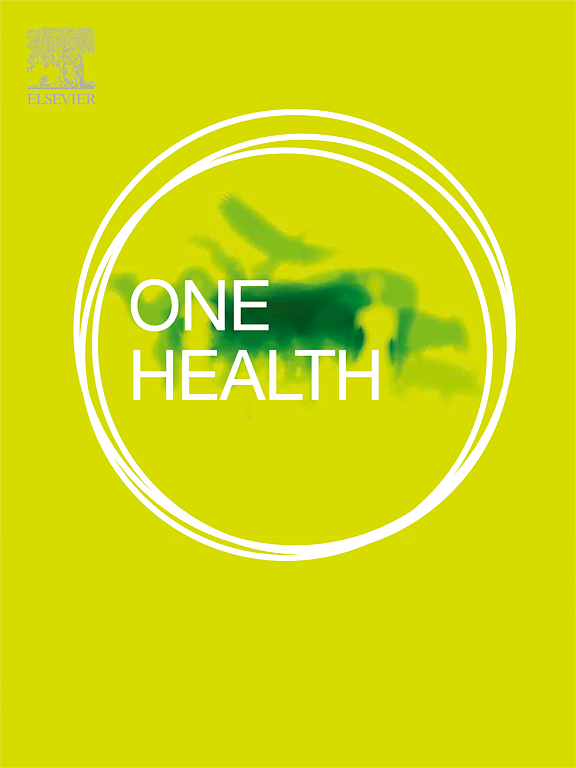在农场系统中用马匹进行为期 15 天的生物多样性干预试点,使 10 名意大利城市儿童的肠道微生物组实现野化
IF 4.1
2区 医学
Q1 INFECTIOUS DISEASES
引用次数: 0
摘要
为了让人们了解通过与自然生态系统交换益生菌来塑造人类肠道微生物组(GM)的可能性,我们在此探讨了与马匹进行 15 天的日常互动对 10 名生活在城市的意大利儿童的肠道微生物组的影响。具体来说,孩子们在一个 "教育农场 "里与马密切接触,每天花近 10 个小时与动物互动。在与马互动之前和之后,使用代谢编码序列和散弹枪元基因组学方法,对儿童的基因组以及马的皮肤、口腔和粪便微生物组进行了评估。此外,还对儿童粪便中转基因产生的有益代谢物(即短链脂肪酸)进行了靶向代谢组学分析。与马的相互作用促进了儿童转基因微生物获得与健康相关的特征,如增加多样性、提高丁酸盐产量以及增加几种被认为是下一代益生菌的促进健康的物种。其中包括丁酸盐生产者Facecalibacterium prausnitzii和F. duncaniae,以及一种属于Christensenellales目的物种。与马的相互作用还与 Eggerthella lenta、Gordonibacter pamelae 和 G. urolithinfaciens 的比例增加有关,已知这些转基因成分在将食物中的植物多酚生物转化为有益代谢物的过程中发挥作用。值得注意的是,没有观察到潜在有害性状(包括毒素基因)的增加。总之,我们的试点研究为儿童和马匹微生物组之间可能存在的促进健康的交流提供了一些见解。它为实施更系统的研究工作奠定了基础,以便通过与自然生态系统的交流探索人类转基因野化的全部复杂性,从而与 "一体健康 "方法保持一致。本文章由计算机程序翻译,如有差异,请以英文原文为准。
A 15-day pilot biodiversity intervention with horses in a farm system leads to gut microbiome rewilding in 10 urban Italian children
To provide some glimpses on the possibility of shaping the human gut microbiome (GM) through probiotic exchange with natural ecosystems, here we explored the impact of 15 days of daily interaction with horses on the GM of 10 urban-living Italian children. Specifically, the children were in close contact with the horses in an “educational farm”, where they spent almost 10 h/day interacting with the animals. The children's GM was assessed before and after the horse interaction using metabarcoding sequencing and shotgun metagenomics, along with the horses' skin, oral and fecal microbiomes. Targeted metabolomic analysis for GM-produced beneficial metabolites (i.e., short-chain fatty acids) in the children's feces was also performed. Interaction with horses facilitated the acquisition of health-related traits in the children's GM, such as increased diversity, enhanced butyrate production and an increase in several health-promoting species considered to be next-generation probiotics. Among these, the butyrate producers Facecalibacterium prausnitzii and F. duncaniae and a species belonging to the order Christensenellales. Interaction with horses was also associated with increased proportions of Eggerthella lenta, Gordonibacter pamelae and G. urolithinfaciens, GM components known to play a role in the bioconversion of dietary plant polyphenols into beneficial metabolites. Notably, no increase in potentially harmful traits, including toxin genes, was observed. Overall, our pilot study provides some insights on the existence of possible health-promoting exchanges between children and horses microbiomes. It lays the groundwork for an implemented and more systematic enrollment effort to explore the full complexity of human GM rewilding through exchange with natural ecosystems, aligning with the One Health approach.
求助全文
通过发布文献求助,成功后即可免费获取论文全文。
去求助
来源期刊

One Health
Medicine-Infectious Diseases
CiteScore
8.10
自引率
4.00%
发文量
95
审稿时长
18 weeks
期刊介绍:
One Health - a Gold Open Access journal.
The mission of One Health is to provide a platform for rapid communication of high quality scientific knowledge on inter- and intra-species pathogen transmission, bringing together leading experts in virology, bacteriology, parasitology, mycology, vectors and vector-borne diseases, tropical health, veterinary sciences, pathology, immunology, food safety, mathematical modelling, epidemiology, public health research and emergency preparedness. As a Gold Open Access journal, a fee is payable on acceptance of the paper. Please see the Guide for Authors for more information.
Submissions to the following categories are welcome:
Virology,
Bacteriology,
Parasitology,
Mycology,
Vectors and vector-borne diseases,
Co-infections and co-morbidities,
Disease spatial surveillance,
Modelling,
Tropical Health,
Discovery,
Ecosystem Health,
Public Health.
 求助内容:
求助内容: 应助结果提醒方式:
应助结果提醒方式:


